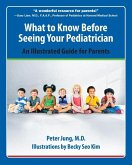The virus is transmitted through contact with respiratory secretions from an infected person, such as coughing or sneezing. It can also be spread by touching surfaces contaminated with the virus and then touching one's nose or mouth. The virus can survive on surfaces for several hours, so it is important to practice good hygiene to prevent its spread.
RSV infections can cause a wide range of symptoms, ranging from mild cold-like symptoms to more severe respiratory illness. Infants and young children are particularly susceptible to severe RSV infections, which can lead to bronchiolitis (inflammation of the small airways in the lungs) or pneumonia (infection of the lungs).
Symptoms of RSV infection in infants and young children may include a runny nose, cough, fever, and wheezing. Infants with RSV may also have difficulty breathing and may show signs of dehydration, such as decreased urine output and a dry mouth. In some cases, RSV infection can lead to more serious complications, such as respiratory failure or even death.
In healthy adults, RSV infections may cause mild cold-like symptoms, but the virus can also cause more severe illness in older adults and those with weakened immune systems. In these populations, RSV infections can lead to pneumonia and other serious respiratory illnesses.
There is no specific treatment for RSV infection, and most people recover from the illness within one to two weeks. Treatment is generally focused on relieving symptoms, such as using a humidifier to help with breathing and fever reducers to reduce fever. In severe cases, hospitalization may be necessary to provide oxygen and other supportive care.
Prevention is key to avoiding RSV infection. There is no vaccine for RSV, but there are several steps that can be taken to reduce the risk of infection. These include washing hands frequently, avoiding close contact with sick individuals, and avoiding touching one's face with unwashed hands. In addition, certain populations may benefit from preventative measures such as monthly injections of a monoclonal antibody to prevent RSV infections.
In summary, Respiratory Syncytial Virus (RSV) is a common respiratory virus that can cause infections of the lungs and respiratory tract. While most healthy individuals will recover from the illness within one to two weeks, infants, young children, and those with weakened immune systems are at risk for more severe illness. Prevention is key to avoiding RSV infection, and good hygiene practices and avoidance of close contact with sick individuals can help reduce the risk of infection.
Dieser Download kann aus rechtlichen Gründen nur mit Rechnungsadresse in A, B, CY, CZ, D, DK, EW, E, FIN, F, GR, H, IRL, I, LT, L, LR, M, NL, PL, P, R, S, SLO, SK ausgeliefert werden.









